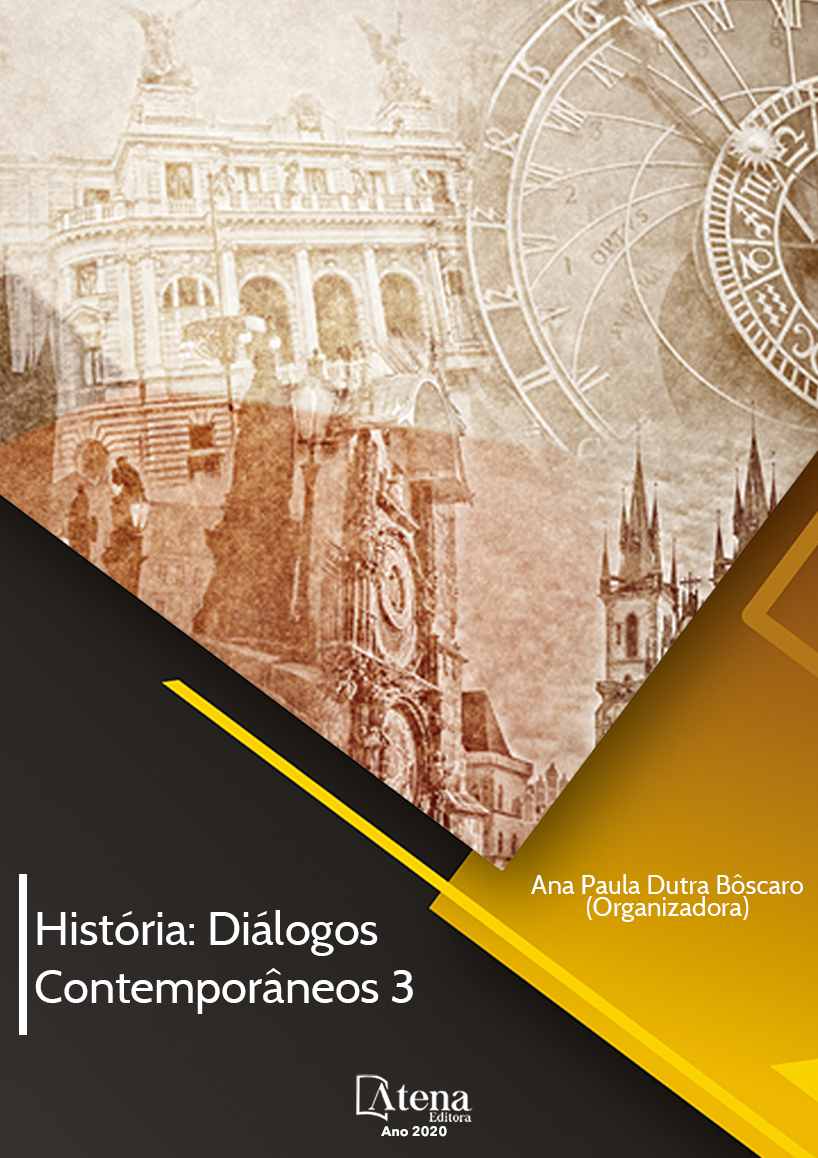
A EXTREMA-DIREITA NO BRASIL CONTEMPORÂNEO: O CASO DO MOVIMENTO MÍDIA SEM MÁSCARA E O USO IDEOLÓGICO DAS FONTES
O Brasil vem sendo palco de
diversos movimentos de extrema-direita nas
últimas décadas do século XX e início do
século XXI. A reestruturação do capitalismo,
a fragmentação da classe trabalhadora,
enfraquecendo sua identidade de classe, e a
instabilidade econômica e social que coloca
as classes médias em uma situação de
insegurança e predispostas a medos coletivos
socialmente construídos, contribuiu para que
o terreno político e social brasileiro torne-se
fértil para o surgimento de movimentos sociais
extremistas situados à direita do espectro
político, com discursos elaborados em torno da
idéia de inimigo e de nacionalismo extremado.
O presente trabalho estuda o movimento
Mídia Sem Máscara (MSM), criado e liderado
por Olavo de Carvalho, que faz uso dos mais
modernos meios de comunicação, como as
redes sociais, para difundir sua visão de mundo
e suas narrativas sobre os problemas brasileiros
e mundiais, com o objetivo de alcançar a
opinião pública e persuadi-la a aderir às suas
propostas discriminatórias e excludentes de
organização da sociedade brasileira. A fonte
que será trabalhada é a obra de Heitor de
Paola, O Eixo do Mal Latino-Americano, que
apresenta a visão de mundo do movimento,
reunindo diversos artigos do autor publicados no
site do MSM, além de usar como referência os
trabalhos de outros integrantes do movimento
e de seu líder Olavo de Carvalho. O objetivo
é analisar o uso ideológico das fontes na
referida obra, com características como a a não
citação das origens de algumas fontes usadas
– notadamente supostas falas de Lenin, Stalin,
etc -, descontextualizações de algumas fontes
citadas e apropriação distorcida das idéias de
alguns autores, como Marx e Gramsci, para
“legitimar” a tese conspiracionista anticomunista
do movimento em questão.
A EXTREMA-DIREITA NO BRASIL CONTEMPORÂNEO: O CASO DO MOVIMENTO MÍDIA SEM MÁSCARA E O USO IDEOLÓGICO DAS FONTES
-
DOI: 10.22533/at.ed.39320100214
-
Palavras-chave: Extrema-Direita; Anticomunismo; Fontes; Ideologia
-
Keywords: Extreme Right; Anti-communism; Sources; Ideology
-
Abstract:
Brazil has been the scene of
several extreme right-wing movements in the
last decades of the twentieth and early twentyHistória:
first centuries. The restructuring of capitalism, the fragmentation of the working class,
weakening its class identity, and the economic and social instability that puts the
middle classes in a situation of insecurity and predisposed to socially constructed
collective fears, contributed to the Brazilian political and social context become fertile
for the rise of extremist social movements to the right of the political spectrum, with
elaborate discourses around the idea of the enemy and extreme nationalism. The
present paper studies the Media Without Mask (MSM) movement, created and led by
Olavo de Carvalho, which makes use of the most modern means of communication,
such as social networks, to spread his worldview and his narratives about Brazilian
and international problems to reach public opinion and persuade it to adhere to its
discriminatory and exclusionary proposals for the organization of Brazilian society.
The source that will be worked on is the paper of Heitor de Paola, The Axis of Latin
American Evil, which presents the world view of the movement, gathering several
articles by the author published on the MSM website, as well as reference the works of
others members of the movement and its leader Olavo de Carvalho. The objective is to
analyze the ideological use of the sources in this paper, with characteristics such as not
citing the origins of some sources used - notably supposed statements of Lenin, Stalin,
etc. -, decontextualization of some sources mentioned and distorted appropriation of
the ideas of some authors, like Marx and Gramsci, to “legitimize” the anti-Communist
conspiracyist thesis of the movement in question.
-
Número de páginas: 9
- Natalia dos Reis Cruz


